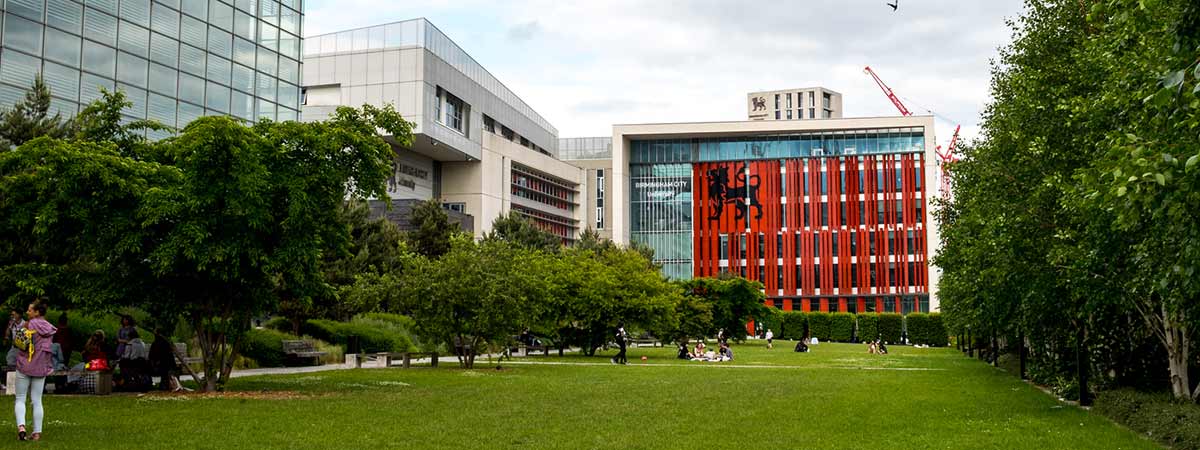
English Research Degrees - PhD
Currently viewing course to start in 2026/27 Entry.
A PhD in English will help you to develop research skills that support professional practice, research and/or academic careers. You will work closely with a team of specialist academics in your chosen field, and receive excellent support tailored to your individual needs.
- Level Postgraduate Research
- Study mode Full Time/Part Time/Distance Learning
- Award PhD
- Start date September 2026, February 2027
- Subject
- Location City Centre
This course is:
Open to International Students
Overview
A PhD in English will help you to develop research skills that support professional practice, research and/or academic careers. You will work closely with a team of specialist academics in your chosen field, and receive excellent support tailored to your individual needs.

Midlands4Cities Scholarships
This course is eligible for PhD studentships via the Midlands4Cities Doctoral Training Partnership. Expressions of interest have now closed.
What's covered in this course?
A PhD enables you to follow a programme of self-directed, independent study, supported by experienced supervisors who are themselves experts in their area. You will also be supported by the wider research community in the Faculty and you will have regular opportunities to attend research seminars, conferences and symposia.
Why Choose Us?
- The School of English at BCU is a small, friendly academic environment that offers excellent support to all of our PhD students.
- As well as a main supervisor (or Director of Studies), you will have a second supervisor to read and comment on your work.
- We have a strong research culture and provide a range of career development opportunities to our graduate students.
- Our teaching staff are also expert researchers in English Language and Literature. 94% of research in English at BCU was judged to be either world-leading (4*) or internationally excellent (3*) in REF2021
Research Interests
The School of English is keen to hear from serious researchers interested in pursuing a PhD. Normally we would expect a good MA in a relevant area as an entry requirement, but in certain cases this may not be appropriate.
Current interests
We supervise doctoral work in a range of areas within English Studies, primarily:
Fees & How to Apply
UK students
Annual and modular tuition fees shown are applicable to the first year of study. The University reserves the right to increase fees for subsequent years of study in line with increases in inflation (capped at 5%) or to reflect changes in Government funding policies or changes agreed by Parliament. View fees for continuing students.
Award: PhD
Starting: Sep 2026
- Mode
- Duration
- Fees
- Full Time
- 3-4 years
-
TBC
- Part Time
- 4-7 years
-
TBC
Award: PhD
Starting: Feb 2027
- Mode
- Duration
- Fees
- Full Time
- 3-4 years
-
TBC
- Part Time
- 4-7 years
-
TBC
International students
Annual and modular tuition fees shown are applicable to the first year of study. The University reserves the right to increase fees for subsequent years of study in line with increases in inflation (capped at 5%) or to reflect changes in Government funding policies or changes agreed by Parliament. View fees for continuing students.
Award: PhD
Starting: Sep 2026
- Mode
- Duration
- Fees
- Full Time
- 3-4 years
-
TBC
- Part Time
- 4-7 years
-
TBC
- Distance Learning
- 4-7 years
-
TBC
Award: PhD
Starting: Feb 2027
- Mode
- Duration
- Fees
- Full Time
- 3-4 years
-
TBC
- Part Time
- 4-7 years
-
TBC
- Distance Learning
- 4-7 years
-
TBC
If you’re unable to use our online application form for any reason, please get in touch.
You must complete a research proposal and upload this as part of your application. Please note that we will not be able to process your application without having received your research proposal.
Entry Requirements
To apply for our English PhD research degree you should have, or expect to be awarded, a Masters degree in a relevant English literary or linguistic field from a British or overseas university.
Exceptional applicants without a Master's degree, but holding a first class Bachelors degree in English, may be considered dependent upon the academic coherence and promise of their research proposal, and its consonance with the academic expertise of the School.
We also welcome enquiries from potential PhD researchers without formal academic qualifications but with appropriate levels of professional experience.
Please send us an initial PhD enquiry containing your brief PhD research proposal (max. 500 words), and/or any questions or queries you may have. You’ll notice that it asks you whether you’ve thought about potential supervisors. Blanket applications, which leave this section blank, are often rejected. You may wish to contact one of our members of academic staff to discuss a potential project, and you are encouraged to do this. Applications, however, should be sent through official channels, beginning with the initial enquiry form.
We will review your initial enquiry to ensure your research proposal compliments one of our PhD research interests and if so we will ask you to make a full application.
English Language Requirements for International Students
Valid Academic IELTS certificate with overall score of 7.0 with no band below 6.5 or equivalent.
Research proposal guidance
Your research proposal should address the following areas:
Objectives
Please outline what the purpose of your research is; e.g. "The objective of this research project is to….."
Scope
Explain the scope of the project and the range of activities that you imagine this will involve; e.g. “The following tasks will be undertaken as a part of the proposed research”.
Background
Explain why this research is needed. Outline previous work in the field (if any exists). What do you imagine the wider benefits of this research will be?
Methodology
Explain what methods you will use to conduct your research and why? Explain the reasons for your choice of methodology and why it is appropriate. Try and think of potential problems that you may encounter.
Resources
Are there specific facilities that you will need to conduct your research (e.g. hardware or software)? If so are these already in place? How do you propose to fund your research?
Course in Depth
Why study a PhD?
Are you keen to contribute innovative ideas to your field? Looking to solve problems, discover something new, and make a difference to society?
We have a vibrant research community here at Birmingham City University, with many talented postgraduate researchers developing and exchanging knowledge across their fields.
Conducting a PhD will allow you to develop cutting-edge research in your area of interest, with the support of your research supervisor and fellow research community.
Supervisors and Support
As an English PhD research student you will be guided through your programme of study by a team of supervisors.
 Your supervisors will help you create your individual PhD research plan which, in your first few months, may include study for a research methods qualification: PG Cert Research Practice.
Your supervisors will help you create your individual PhD research plan which, in your first few months, may include study for a research methods qualification: PG Cert Research Practice.
Your supervisory team will include a Director of Studies whose role it is to ensure that you are meeting targets and following the correct processes and systems for conducting English PhD research.
You will also be supported by a second supervisor (and sometimes a third) who will provide guidance based on their knowledge of your specific English PhD research interest.
You will meet with your supervisors on a regular basis to review your progress, receive advice and plan the next stages of your PhD research degree.
You will present your research developments regularly to supervisors and other members of your PhD research community at Birmingham School of English.
Modes of Study
Our English PhD research degree is offered full-time, part-time or by distance learning.
These three modes of study ensure that we can create a PhD research plan around your lifestyle needs, even if you are in full-time employment or overseas.
Full-time PhD Research: three to four years
As a full-time English PhD research student you will undertake much of your research on campus using the facilities at the School of English.
You will be expected to complete your research and submit your work for examination within 36-43 months.
Part-time PhD Research: four to seven years
You would chose part-time English PhD research if you opt to study whilst in employment or if full-time study is impractical.
You will be encouraged to use the campus facilities at the School of English when you can and may often work from home.
You will be expected to complete your research and submit your work for examination within 48-72 months.
Distance Learning PhD Research: four to seven years
Distance learning is possible, under carefully controlled circumstances, if you normally live outside of the UK but wish to conduct English PhD research with the School of English.
You will still be required to have some level of face-to-face engagement with us each academic year, often by conducting research on campus in Birmingham (UK).
Face to face research will be arranged for a period of time during the summer months, or at a mutually agreed time.
You will be expected to complete your research and submit your work for examination within 48-72 months.
Employability
The value of a PhD
The Doctor of Philosophy or PhD is recognised worldwide and is often an essential requirement for those wishing to follow an academic or research career in industry or commerce.
Our English PhD research degree will help you create opportunities to develop research skills that support professional practice, research and/or academic careers.
Graduate roles
Dr Serena Trowbridge completed her Ph.D. in the School of English in 2010, working on Christina Rossetti and the influence of Gothic under the supervision of Professor Fiona Robertson. Her monograph, Christina Rossetti's Gothic, based on her thesis, was published by Bloomsbury in 2013.
Serena is now Associate Director of Research for the School of English, with responsibility for researcher education and career development. She is Reader in Victorian Literature. Her research interests include Gothic, graveyard poetry, Pre-Raphaelitism in art and literature, lunatic asylums, ecocriticism and eighteenth and nineteenth century literature generally.
Facilities & Staff

Our Facilities
When you join Birmingham City University, the first thing you will notice is the high standard of our campuses. With an investment of over £500 million across our buildings and facilities, we are committed to giving you the very best learning environment to help shape your experience.
Our English courses are based at both Millennium Point, and at our £63 million development the Curzon Building, located on our City Centre campus in the vibrant second city that is Birmingham.
Discover your bright and open learning spaces, your 24 hour (during term time) library, drama, media and radio studios, along with state of the art lecture theatres, and a variety of sociable break-out areas, all adding to your unique learning experience.
Our staff
Dr Anthony Howe
Reader in English Literature and MA English Literature Course Director
Dr Anthony Howe is Reader in English Literature and Associate Director of Research for English at Birmingham City University. Originally from the North East of England, he studied at Liverpool (BA; MA) before taking a PhD at Cambridge. Prior to his current post he taught at the Universities of Cambridge and Oxford. He is a Senior Fellow of the...
More about Anthony
